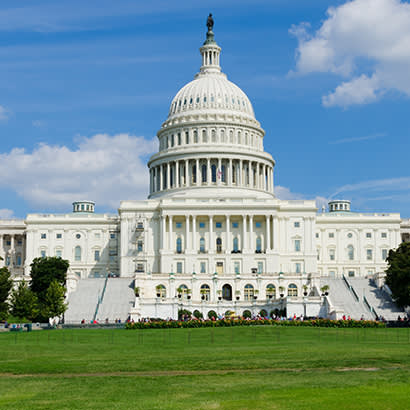
For the first time since 1986 Congress has passed a significant tax reform bill (House Vote 224-201, Senate Vote 51-48) and is expected to be signed by President Trump. What does this all mean for park and recreation agencies? Don’t sweat it we’re here to help.
Good News
Municipal bonds: No changes to the tax treatment of the bread and butter financing vehicle for many counties, cities, towns and special park and recreation districts. Earlier proposals had floated tweaking or eliminating the tax deduction, but were quickly scrapped. Embedded in this “good news,” however, is some bad news. Both individual and corporate investors could have a reduced appetite for municipal bonds as lower marginal income tax rates will make tax advantage investments less attractive than they are when tax rates are high.
Private Activity Bonds: Proposals to eliminate the tax deductibility of Private Activity Bonds (PABs) were stripped out, meaning that large local infrastructure projects that are public-private partnerships or privately financed will keep their tax advantages. Eliminating this deduction would have undermined the Administration’s efforts to stimulate public-private partnership (P3) infrastructure spending.
New Market Tax Credits: These have been extended through 2019. This financing vehicle for projects in low income communities has been used by enterprising park and recreation agencies to fund park projects or recreation/community centers in low income communities.
Bad News
State and Local Tax Deductions: Taxpayers can either deduct up to $10,000 in state and local income plus property taxes, or deduct up to $10,000 in state and local property and sales taxes. Capping the deductibility of state and local taxes likely will not have an instantaneous impact on park and recreation budgets, but taxpayers’ inability of to fully deduct these taxes could have a lasting detrimental effect.
Taxpayers who see their federal tax bill rise because of this change could pressure state and local lawmakers to lower their state/local tax burden. Further, higher effective costs of local and state property taxes could dampen home values, lowering the amount of revenues governments can collect from property taxes. As a result, state and local governments may have to slash spending to balance their budgets. Per a recent NRPA study, local public officials say that they target park and recreation agency budgets the most when facing fiscal pressures.
Advance Refunding of Bonds: Terminating advance refundings will eliminate the flexibility that municipal issuers have had to take advantage of lower interest rates and free up funds for other projects. It will raise costs for issuers.
Deficit Projections: The plan is projected to add more than $1 trillion to the deficit over 10 years.
NRPA’s public policy team will continue to sift through this legislation and identify any additional threats or opportunities in this bill.
Happy Holidays.
Learn more about federal policy and legislative issues impacting parks and recreation.
Kevin O’Hara is NRPA’s Vice President of Urban and Government Affairs.

